- How can WordPress technology be a go-to for website design companies?
- Can we rely on just one WordPress theme to run a company?
- What concerns may a website design agency have about just using one theme?
Is It Really Possible to Use Just One WordPress Theme for All of Your Website Designs?
As a website design company, one of the most important decisions you need to consider is what type of website-building technology you’ll adopt and what theme you’ll use. Here’s where the tireless research begins, but let us save you some time and give you some pointers on how it’s very possible that all you’ll need is one WordPress theme to create any type of website for your prospective clients.
You may gasp in shock at this suggestion—after all, you’re most likely getting requests from a wide scope of clients each representing a different industry so you may be concerned that one theme can’t possibly have the range of customizability and flexibility to cater to each client. Humor us for a moment though. What if there were just one WordPress theme that would allow you to create a website that was custom-fit for any type of enterprise? Let’s let that thought marinade for a moment and consider a few key elements a WordPress theme would need to meet those standards:
What Does It Take to Be Your One and Only Go-To WordPress Theme?
1. Versatility
It’s most likely that your clients represent a wide range of industries from nonprofits and corporations to bloggers and performing artists. That means your theme needs to be flexible and allow you to bend the rules to customize every aspect of each page individually. Every customer will require a different strategy that aims toward high conversion rates and exposure so finding one website theme that offers a wide variety of built-in plugins, shortcodes and features will be a huge timesaver for you and your team.
2. Efficiency
Being able to use one theme for 50+ different sectors and purposes will not only be cost-effective in the long-run but will save you a lot of time not having to orient yourself to various website builders and their respective settings. Having one theme that you’ve mastered and that allows you to create any type of website you need means shorter production time for each completed website and what that means is lower costs not only for you but your customers!
3. Easy to Learn & Use
Perhaps for someone who’s more technically savvy, learning how to use a WordPress theme may be pretty easy, though you’ll want to be sure to have a WordPress theme that is intuitive and easy to learn for your customers. A major selling point for your company can be creating a website that your customers can also manage themselves later down the road. Nowadays you’ll be hard-pressed to find customers who will agree to be beholden to you every time they want to change something in their site so marketing an easy-to-use theme will be sure to make your services and product more approachable for potential customers.
4. SEO-Optimized
Another great selling points for your customers is using a WordPress theme that’s SEO-optimized and fast-loading! This will increase your customer’s click-through rates, website traffic and overall brand awareness which, in turn, will equate to a great return on investment for, again, not only you but your customers!
5. An Active Community Forum & Support
Having access to an extensive and engaged community forum is going to be a win-win asset for both you and your customers. On top of the 24/7 Support you get from your Theme Builders, having an agora of sorts to trade tips and tricks with your peers will provide for you and your customers a well of knowledge and support.
So, Could Artbees Themes Be the Go-To Theme for Your Website Design Agency?
The next question we asked ourselves is how our Artbees Themes measured up against these criteria. To get some honest answers we connected with two of our customers, Kristen and Trent Blizzard, co-founders of BlizzardPress, a thriving website-designing and business consulting company based in Colorado, USA.
With over 15 years of professional experience in web design, organic search engine optimization, social media and online marketing, we were eager to hear what they had to say about the functionality, usability, and overall impact the Jupiter had on their profits and that of their clients.
In our discussion they’ve combined their 15+ years of web design and marketing expertise and their experience with the Jupiter to provide for you some key factors that every website-designing company needs to deliver modern and highly versatile sites in an efficient manner that’s cost-effective for both you and your client!
Thank you so much Kristen and Trent for joining us today from Colorado. First to give our viewers an idea of your experience with the Jupiter, could you give us a ballpark figure of how many websites you’ve created using the Jupiter?
We currently have about 25-30 direct client websites running on Jupiter. We also develop sites for several marketing agencies who we have trained to use the Jupiter framework for their own clients.
Wow! That’s great to hear! And for what kind of businesses do you specifically use the Jupiter?
We use Jupiter across the board– professional services, public services, local retailers, non-profits. Out of the box, Jupiter’s functionality set is very comprehensive. Without adding too many plugins, businesses can display beautiful visuals and organize data in a way that makes sense and is easy to manage.
We’re happy to hear that since one of our main goals at Artbees is to make the Jupiter as versatile as possible so that any type of industry can use it for their purposes. What features, in your experience, do most small businesses need in their website to get more exposure and target their audience?
What businesses need and what they want are often quite different. They want fancy sliders and parallax sections – they want a site that looks impressive and loads fast. They need a clear conversion goal with meaningful calls to action and a well thought out user experience. They need easy ways to integrate with other marketing vehicles such as email and inbound efforts, SEO best practices – and, most importantly, they need ways to connect all the pieces together within their website. Using the Jupiter, we can deliver what they want AND what they need.
With the Jupiter, functionality is built in. It comes ready to enable if you need it. This along with a few standard plugins or widgets – SEO, forms, anti-spam, analytics – tend to be enough to cover most business needs.
The real question is, with thousands of theme options – why do I use Jupiter for so many site designs? The answer is simple – versatility.
You mentioned that you’ve used a variety of other ThemeForest themes in your experience. Without having to mention which ones specifically, could you tell us a bit about your experience with all of them—what worked, what didn’t. Finally, what lead you to switching to the Jupiter?
Well, with any WordPress theme I always start by asking some simple questions:
- Is it well documented and supported?
- How often does it release updates?
- Does it have the features I need?
- Is there a community/forum?
- Does it have a good user rating?
- Is it a popular download?
Originally, this is how I found Jupiter almost 4 years ago now. I downloaded it and built a fairly extensive website in a day. Today, this website still uses the Jupiter theme – their in-house design team has updated and refreshed many times since the original build.
The real question is, with thousands of theme options – why do I use Jupiter for so many site designs? The answer is simple – versatility. Most themes force designers to work in a box. Often what you see is what you get and it can be very frustrating and require lots of customization outside the theme. With Jupiter, what you get is what you design – what you need. It allows people like me to customize areas of the site (design + functionality) on a per page basis often without major CSS overrides. As a designer, I can meet client needs in a more efficient, and more profitable manner.
And were there any drawbacks to using the Jupiter in general? Or perhaps for a specific business sector or audience?
Often with Jupiter, the pros can also be the cons – for the client. With so much versatility it is possible for a designer to “over design” a site to the extent it becomes hard for a client to manage without a more technical knowledge set. However, knowing this – it is our job to translate a client design in such a way that this is not an issue.
A good example of this might be on-page CSS – the average client will not understand the interface and could not duplicate future page styling without using a cloning feature. It’s up to the designer to put CSS at the top level whenever possible so the client has no exposure. It’s also up to us to know our client well enough to deliver a site that fits their needs.
The other thing which is also a pro and a con is updates. With 30 sites running Jupiter it is hard to stay on top of all the updates. We often lose widgets and styling when we update so the process needs to be managed with excruciating detail. Then again, maintenance has become a new service and source of income for our business. It’s just not one that I love to manage – a necessary evil.
Right, with multiple sites running it can be a bit of a challenge to make sure each is updated. Did you have any experience with our Artbees Support Team if you experienced any problems while creating your website? If so, what was your impression?
The one constructive criticism I would offer ArtBees support is that it would be nice for users to have a classification. I understand the support team speaks to an audience with a wide range of abilities – and the average response is appropriately generic. As a designer using Jupiter all the time however, I hate canned responses – it slows my project momentum down.
If the support team had an idea of my knowledge set, they might initially approach answers to my questions differently. I would even be willing to pay for access to premium support. Aside from this, the team does deliver on their response time and I have personally seen bug fixes taken care of during updates.
Background options on transparent navigation items – such as on www.newcastleliquors.com and www.eagleoutside.com – it’s very difficult to find slider photos that work well as backgrounds for the navigation (clients always want more, more, more slider photos), this solution works well but takes a bit of CSS. Also, a more mobile friendly Edge Slider would be great.
For us, Jupiter makes life more profitable. We are able to deliver modern sites with varied designs and high functionality for a reasonable cost to the client.
What feedback have you received about your websites from your customers? If you gave them access to also modify any elements of their site, what comments did they have about the functionality of Jupiter? Was it user-friendly for non-WordPress familiar individuals?
Jupiter site designs are beautiful and clients generally love the outcome. With any theme in WordPress the layperson requires training. The visual composer plugin itself necessitates some training. With anything, you encounter folks that are technically savvy and others that require more hand-holding. I find the interface very simple, but then again I’m in it every day! Visual composer gets big kudos from me, it’s by far my favorite builder.
Overall, how has your use of the Jupiter impacted your sales, conversions, traffic or customer reviews? And for your customers?
For us, Jupiter makes life more profitable. We are able to deliver modern sites with varied designs and high functionality for a reasonable cost to the client. We experience higher profitability thanks to the efficiency of using the same theme environment with versatile design tools. Even in a scenario where we know upfront we will be doing customizations to fit a complex client design – we use Jupiter.
Our clients are just happy they get what they asked for at a reasonable price. I’d also mention that while using Jupiter might cost them a few extra bucks in regular maintenance (to keep the theme secure and stay on top of regular updates) – it allows them to stay current over the years as each major update brings new design features and lets us refresh site designs over time in a much less costly manner. The outcome of this is a site that stays modern and secure for longer.
And finally, if you were to name some of the top features and shortcodes you use for most of your Jupiter websites, what would they be?
I love using the Portfolio and Blog features for content automation by category. I’d remind people to think outside the box with these features – with visual composer available on both page types, they don’t just have to be used for an actual work portfolio or blog post. Visual composer widgets allows for some pretty awesome page designs and content automation is awesome whenever you can use it. It affords the business owner time savings (one piece of content feeds to many pages) and great visual page designs.
Example: http://www.coloradoriverdistrict.org/
I also think custom Menus in conjunction with widgets and/or multiple Navigation options provides some clients with the navigational diversity they need. These items are really helpful on big content sites to keep user experiences consistent. Additionally,the mobile optimization features through Visual Composer in Jupiter are really nice and the ability to turn on or off sections and rows for mobile viewing often makes optimizing less costly.
Other notable features include Jupiter’s Photo Albums, Google Maps integration, Testimonials, Employees, and the Edge Slider. Some new features that we’ve loved are Equal columns, Shape dividers, Stream-lined Page Loads, and a new Navigation Layout that allows for us to place the logos frontline and center!
Kristen and Trent have provided great examples from their own website creations showing the breadth of styles and sectors that can be made using just the Jupiter:
- www.culturetalk.com
- www.vailcentre.com
- www.rfta.com
- www.newcastleliquors.com
- www.eagleoutside.com
- www.blizzardpress.com
- www.airiphoto.com
Being a website design agency, as Trent and Kristen have clearly demonstrated, creating a functional website for your client doesn’t just end there. Your role in helping businesses create their online marketing presence and obtain those conversion rate goals will require you to have the right WordPress theme that can give you and your client the widest range of capability while also providing functionality, speed and aesthetics. Let the Jupiter WordPress Theme be your most trusted assistant and asset to your web design company helping you to provide an overall more polished and cost-effective product to your customers, whatever vision they may have.


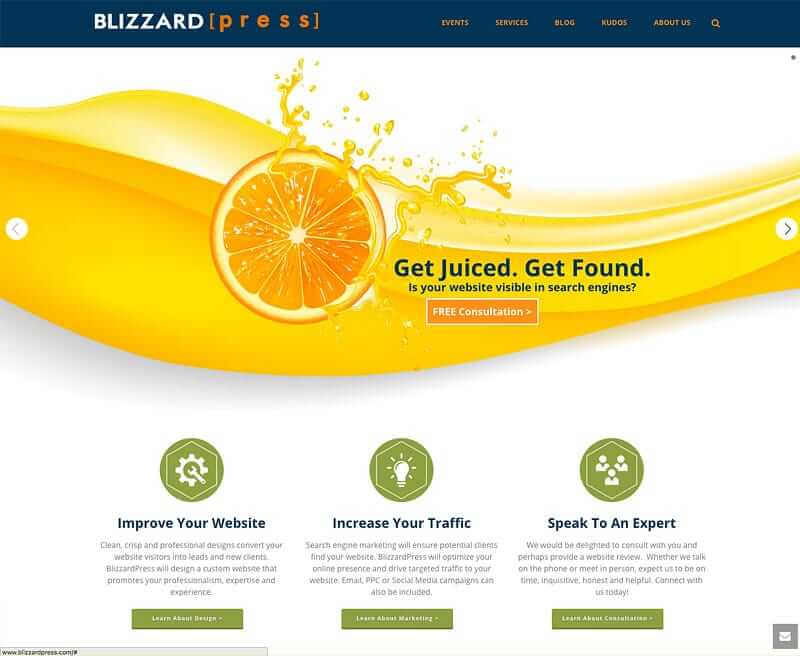
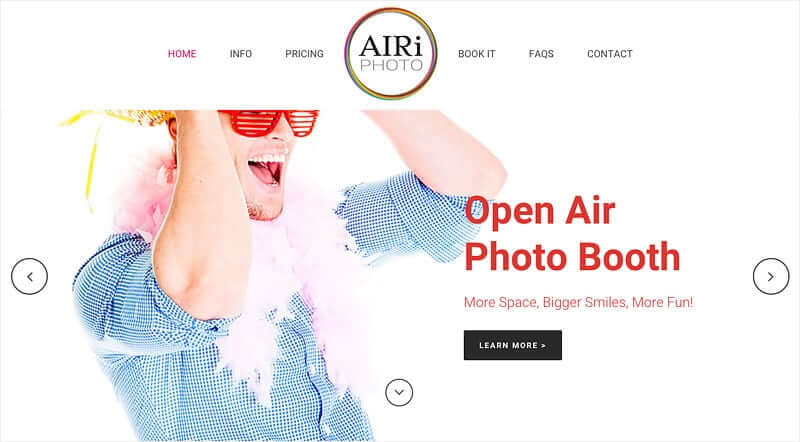
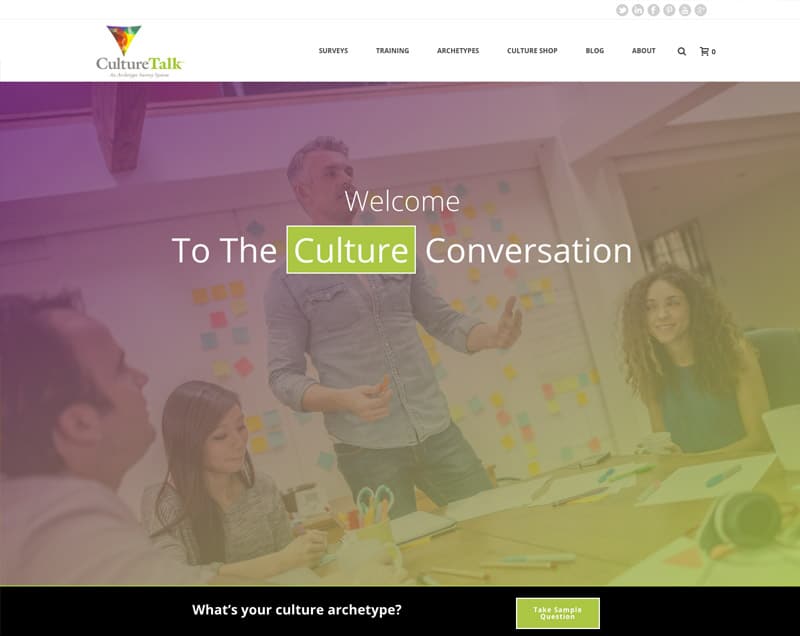
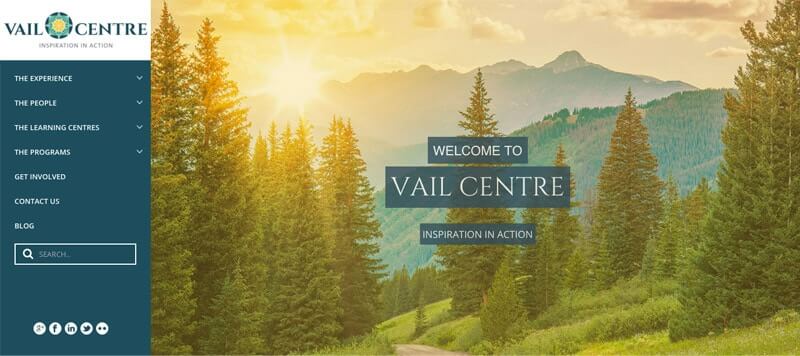
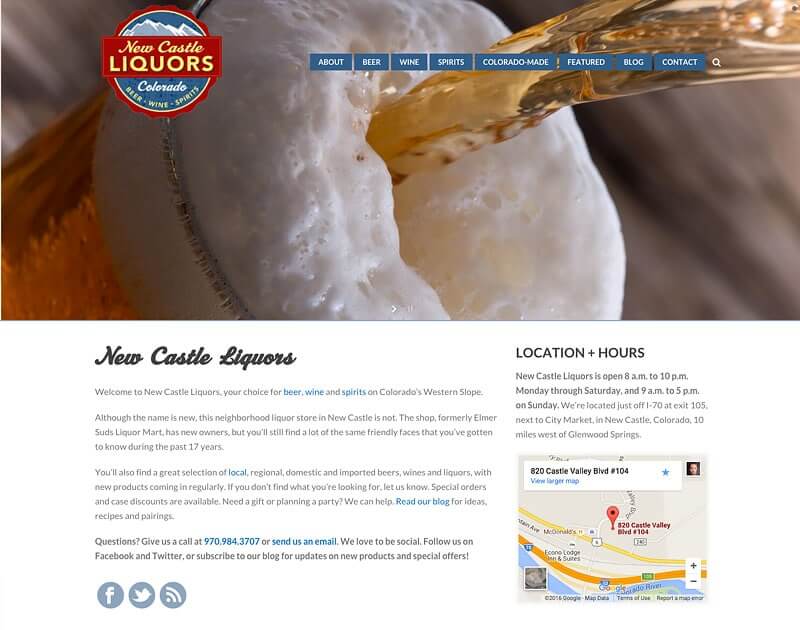

2 Comments
I love Jupiter. But I come from Cornerstone (Theme.co) and switching to the Visual Composer was really hard.
I just keep it minimum and do a lot of custom css.
Thanks Chris. Glad to have you among Jupiter users! This is natural when switching between platforms. I Each page builder has its own pros and cons and may or may not work exactly as expected in the first moment but gladly the authors of this great plugin are always improving the plugin by regular updates and additions.